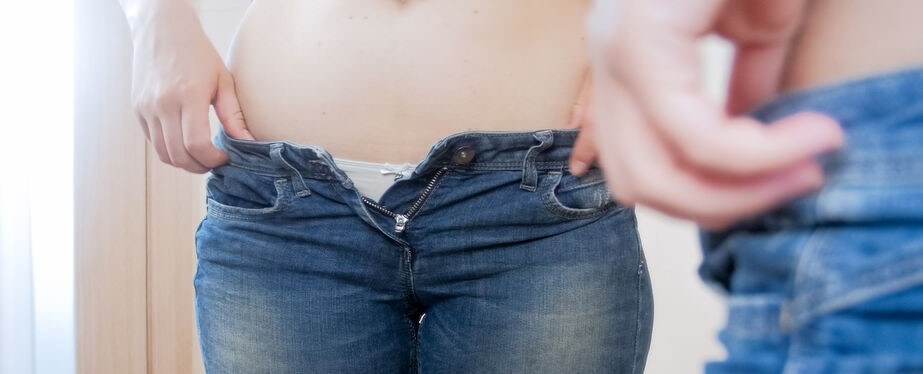Hypothyroidism and weight gain
Introduction
One major symptom associated with hypothyroidism is weight gain. However, many people with hypothyroidism may not have a clue as to why they have gained weight, especially if they maintain a healthy lifestyle and diet.
Most people actually find out that they have hypothyroidism only after proper tests are conducted and the disease is diagnosed. Hypothyroidism is a problem that may arise due to many reasons that may include:
- Iodine deficiency,
- Goiter,
- Side effects of prescription medication(s),
- Thyroid cancer,
- Hyperthyroidism treatment,
- Hashimoto’s thyroiditis and so on.
Why you gain Weight when you have Hypothyroidism
Hypothyroidism is a medical condition whereby the thyroid gland produces low levels of Triiodothyronine (T3) and Thyroxine (T4) thyroid hormones. These two hormones are crucial to regulating your rate of metabolism.
With a less than normal T3 and T4 hormone level in the body, your metabolic rate is slowed down. What this means is that you are more likely to burn fat and calories much slower than normal and when this happens, you are bound to gain weight.
This is mainly due to the body storing up calories as fat in your body instead of converting the calories to energy needed by your muscles for example.

How to Lose Weight when you have Hypothyroidism
Losing weight when you have hypothyroidism can be quite tough. For starters, your doctor may place you on a thyroid hormone replacement prescription medication to help boost your T3 and T4 levels. However, just raising your Triiodothyronine and Thyroxine levels will not be sufficient enough for you to lose significant weight. To lose weight, you would have to put in a lot of effort into maintaining a good diet, a regular exercise schedule and an active lifestyle.
It is important to know what body mass index (BMI) would be ideal under normal circumstances based on your age and gender. This way you would be able to structure your workout routine and diet towards achieving your expected BMI. You can also get to determine your basal metabolic rate or BMR. This will help you in determining your ideal daily calorie consumption.
In addition to maintaining a healthy dietary plan, engaging in regular exercise and avoiding a sedentary lifestyle, you also need to get sufficient rest and sleep.
Restorative sleep will go a long way in ensuring that you lose weight, especially when you back this up with a structured workout regimen, as well as low carb and fat meals.

